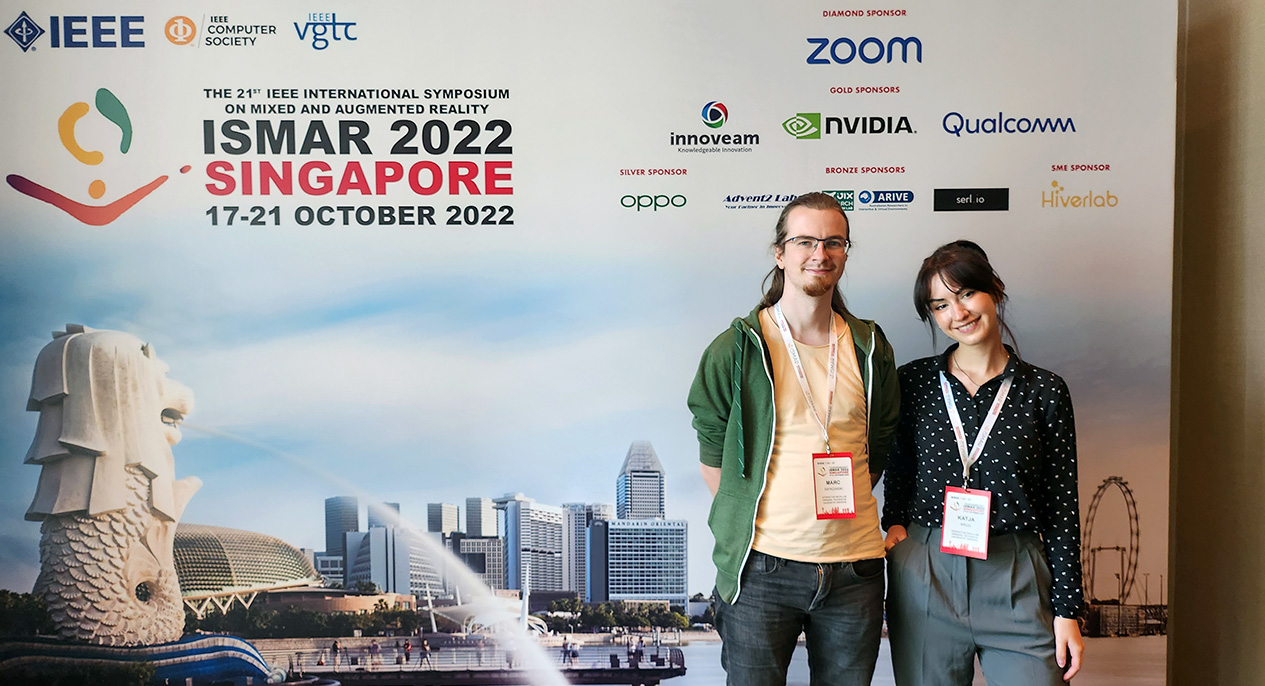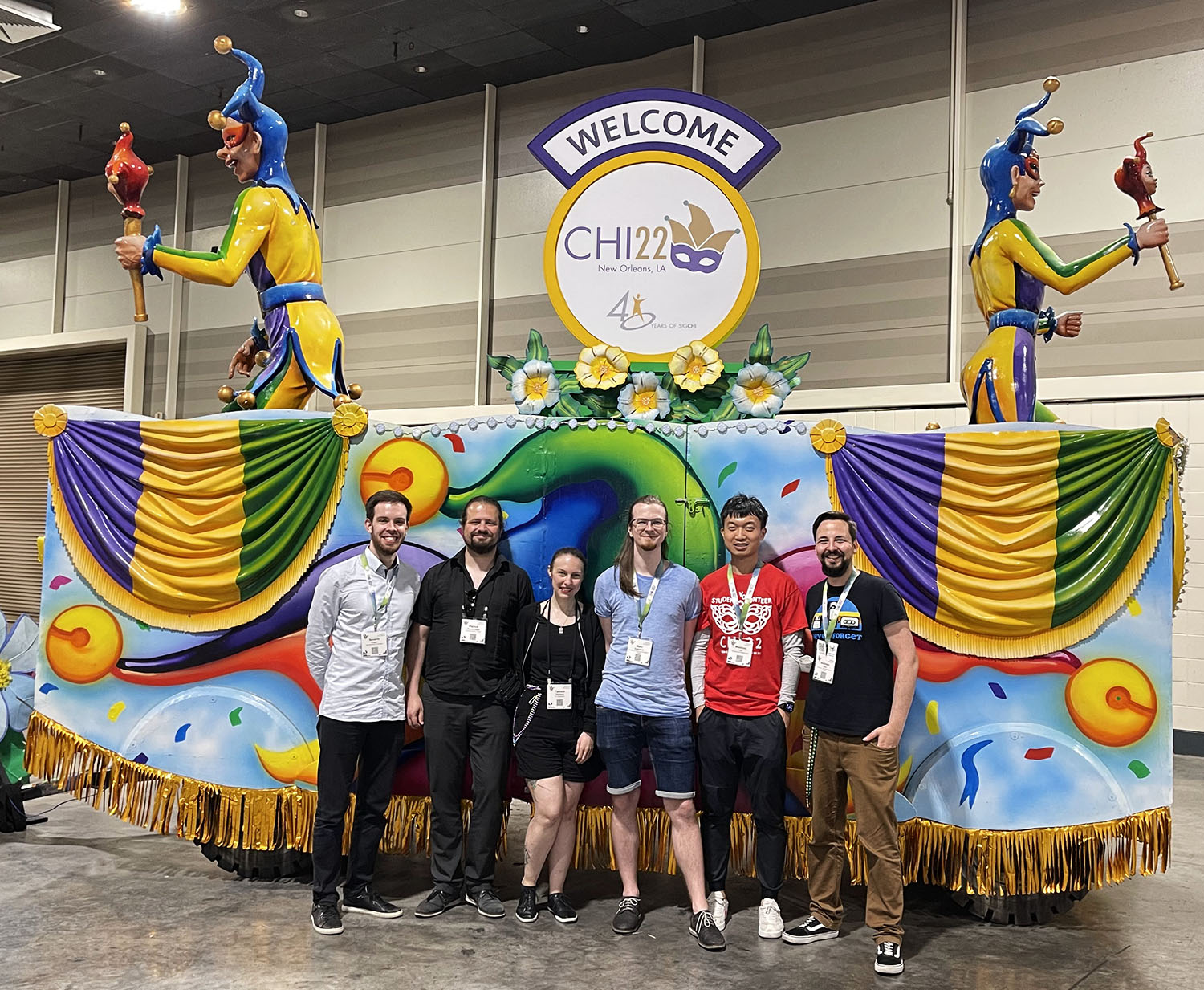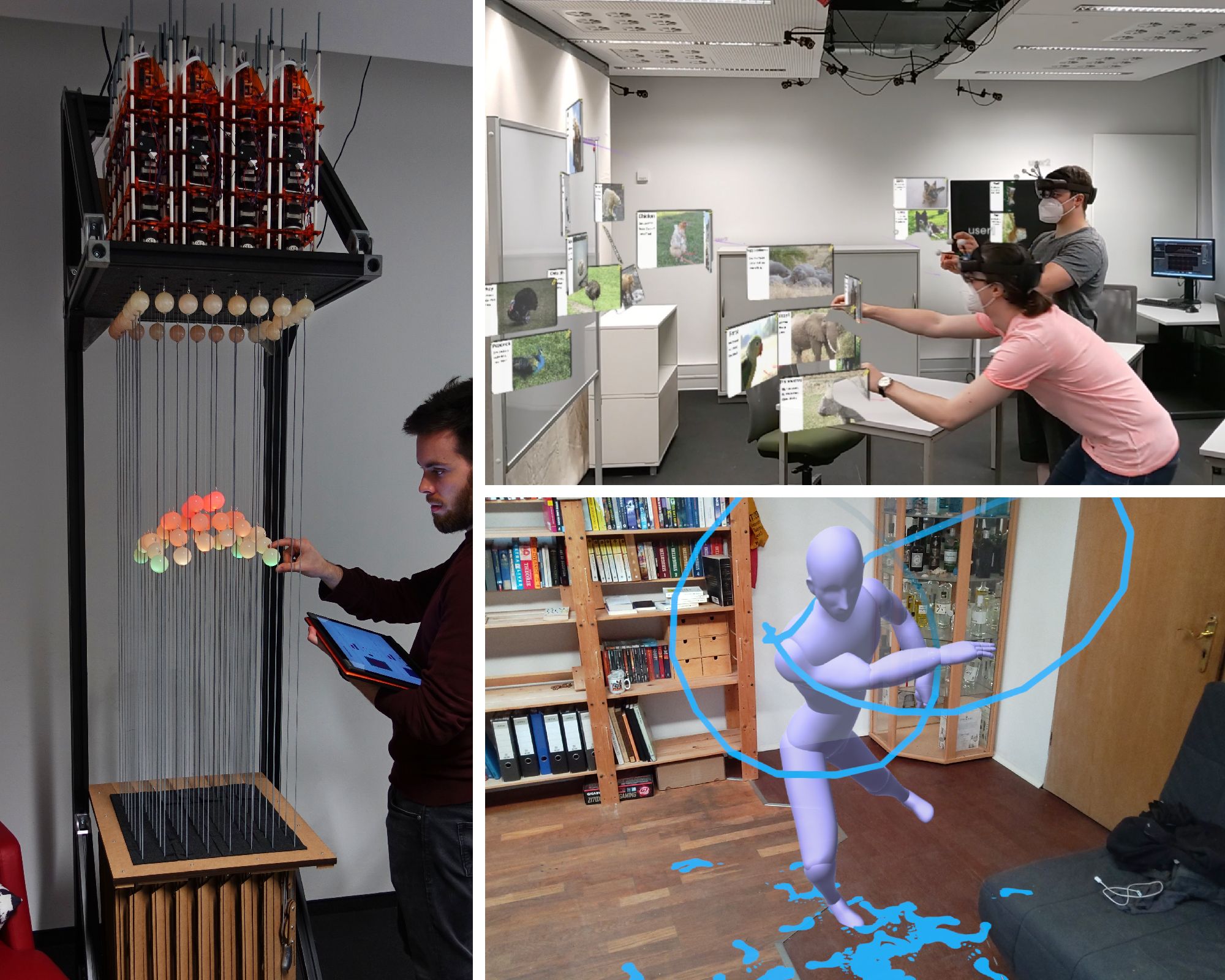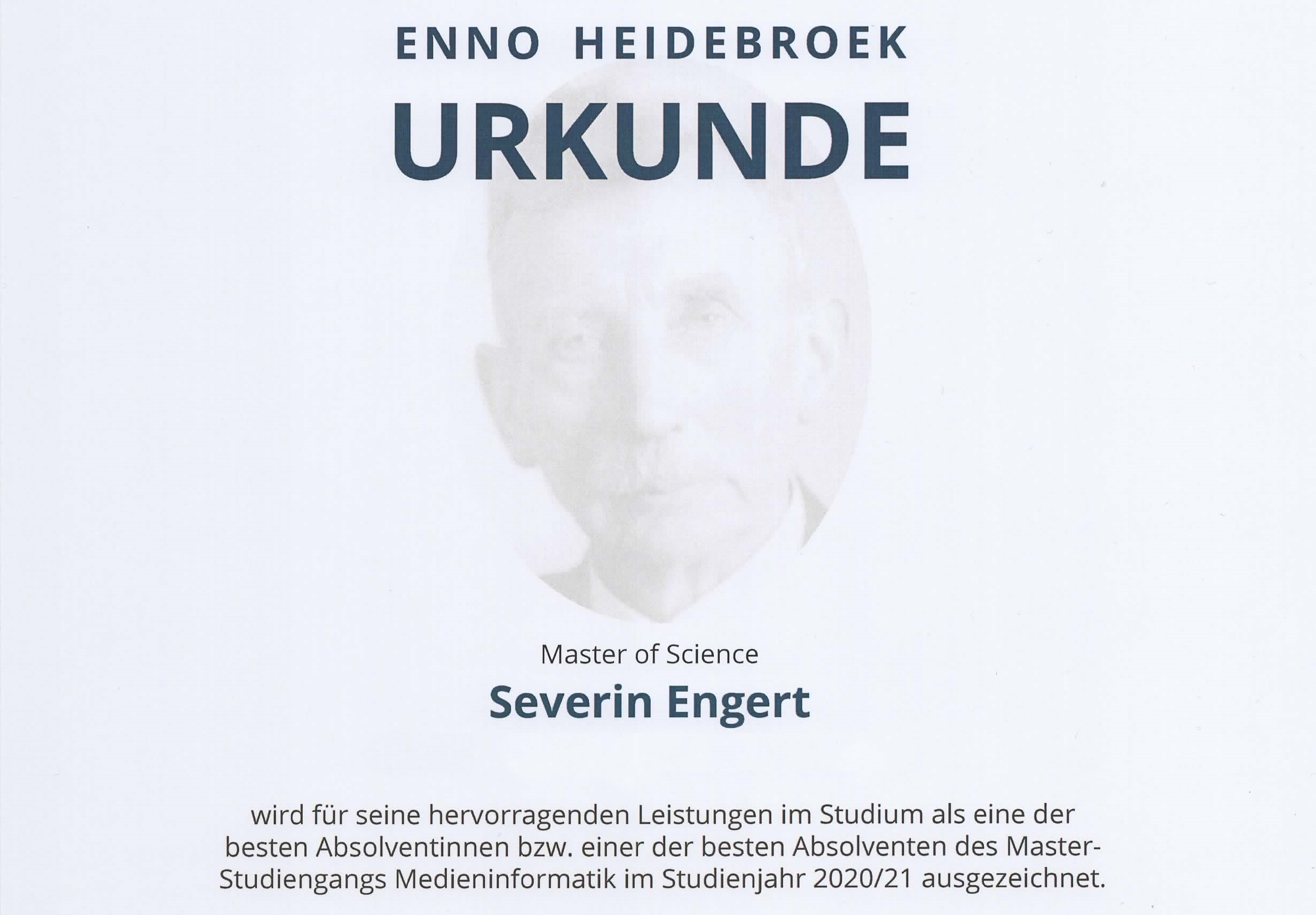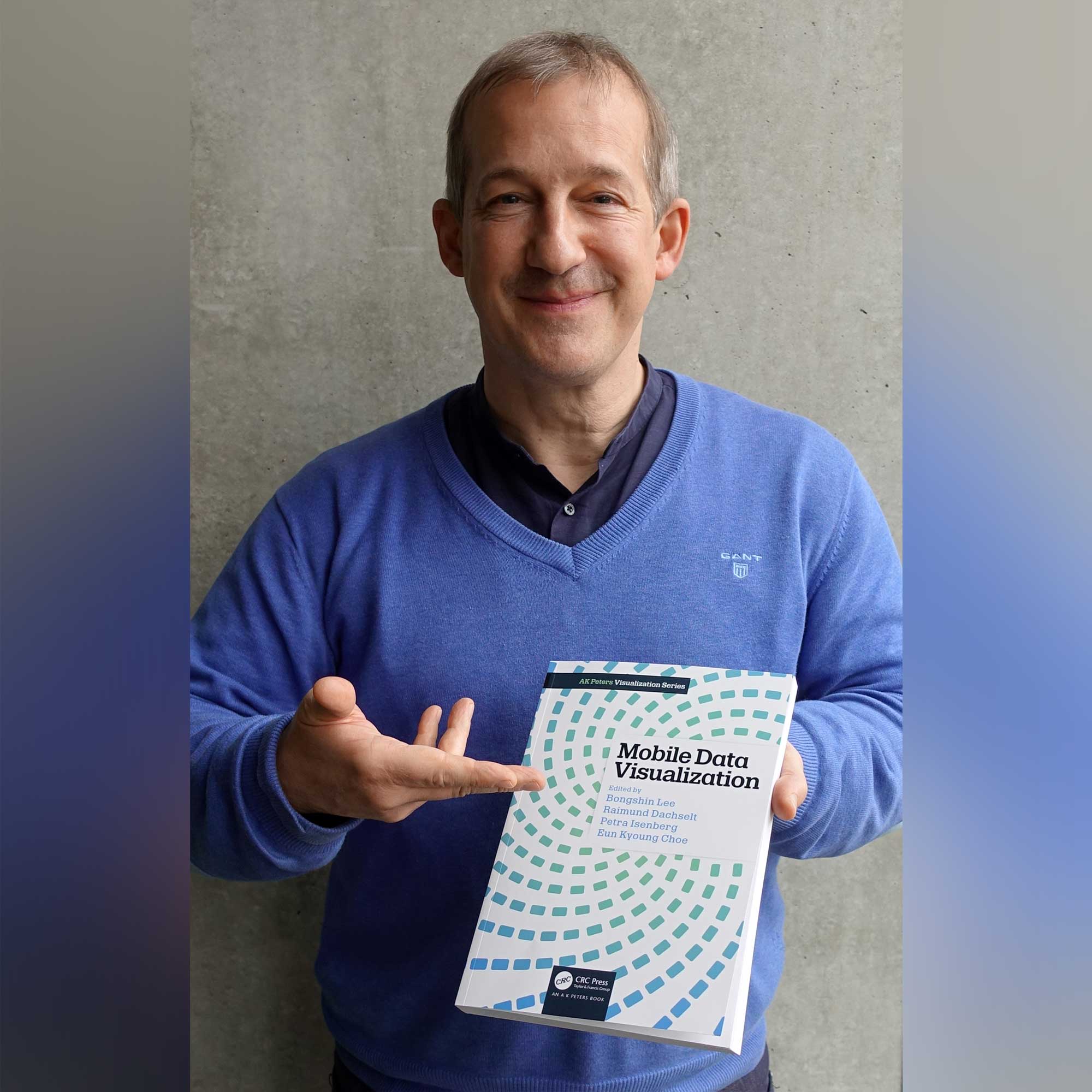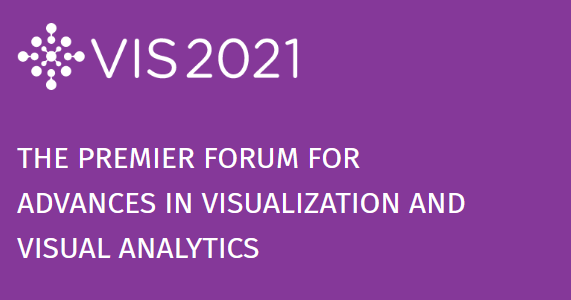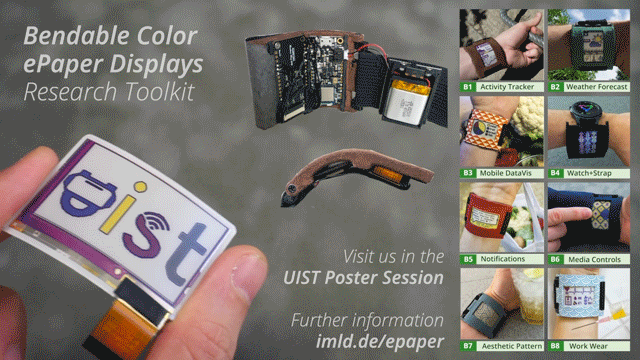This year, the ISMAR conference took place in Singapore. From October 17 to 21, exciting research papers were presented at this important augmented and mixed reality conference, for the first time also in hybrid form. A record was set both in the number of papers and the number of participants. The Interactive Media Lab was represented again this year: Katja Krug, Marc Satkowski and Wolfgang Büschel attended the conference from our Lab.
Continue reading

